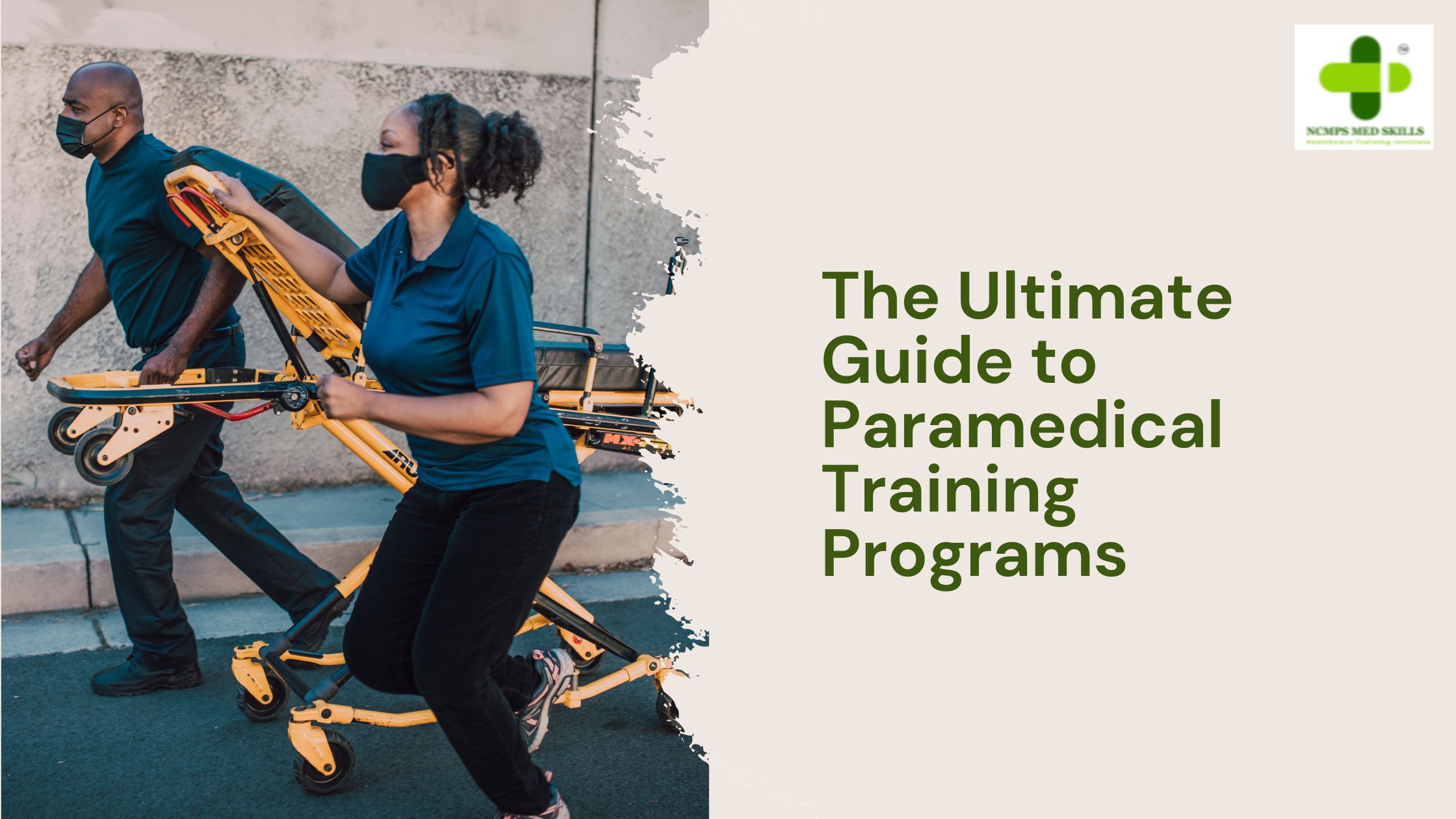
Latest Notifications

The Ultimate Guide to Paramedical Training Programs
Blogs and Notices

The Ultimate Guide to Paramedical Training Programs
Paramedical training programs cover a wide range of healthcare fields, preparing individuals for crucial roles in supporting patient care. Here’s an ultimate guide to these programs:
What are Paramedical Training Programs?
Paramedical training refers to educational programs designed to train individuals to assist medical professionals in various healthcare settings. These programs focus on technical skills, medical knowledge, and patient care.
Types of Paramedical Training Programs:
Emergency Medical Technician (EMT): Trains individuals to provide emergency medical care at the scene of an accident or during transportation to a healthcare facility.
Paramedics: Advanced EMTs trained to provide advanced life support, administer medications, and perform complex medical procedures.
Medical Laboratory Technicians (MLT): Focuses on laboratory tests, sample analysis, and operating lab equipment.
Radiology Technicians: Trains individuals to perform imaging tests like X-rays, MRIs, and CT scans.
Respiratory Therapists: Trained to treat patients with breathing disorders, administer respiratory treatments, and assist with mechanical ventilation.
Pharmacy Technicians: Involved in dispensing medications, managing inventory, and assisting pharmacists.
Occupational Therapy Assistants (OTA) and Physical Therapy Assistants (PTA): Aid occupational therapists and physical therapists in providing rehabilitative services.
Eligibility and Duration:
Requirements vary by program but often include a high school diploma or equivalent. Some programs may require certain prerequisites or certifications. Duration ranges from several months to a few years, depending on the program’s complexity and level.
Course Curriculum:
Typically includes a mix of classroom instruction, laboratory work, and clinical experience. Courses cover anatomy, physiology, medical terminology, specific technical skills, and hands-on training in a clinical setting.
Certification and Licensing:
Many paramedical professions require certification or licensure. Candidates must pass exams administered by certifying bodies or state boards to practice legally.
Career Opportunities:
Graduates can find employment in hospitals, clinics, laboratories, emergency services, rehabilitation centers, and other healthcare settings. The demand for paramedical professionals continues to grow due to the aging population and advancements in healthcare technology.
Continuing Education:
Continual learning and staying updated with the latest advancements are crucial in paramedical fields. Many professionals pursue further education or certifications to advance their careers.
Conclusion:
Paramedical training programs offer diverse career paths in the healthcare industry. They provide opportunities to make a meaningful impact on patient care while offering a rewarding and challenging career.

